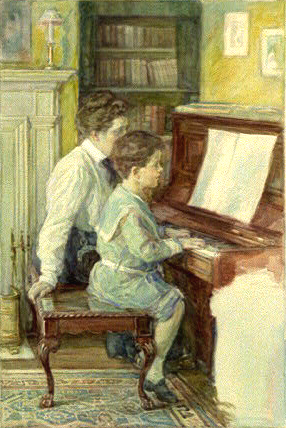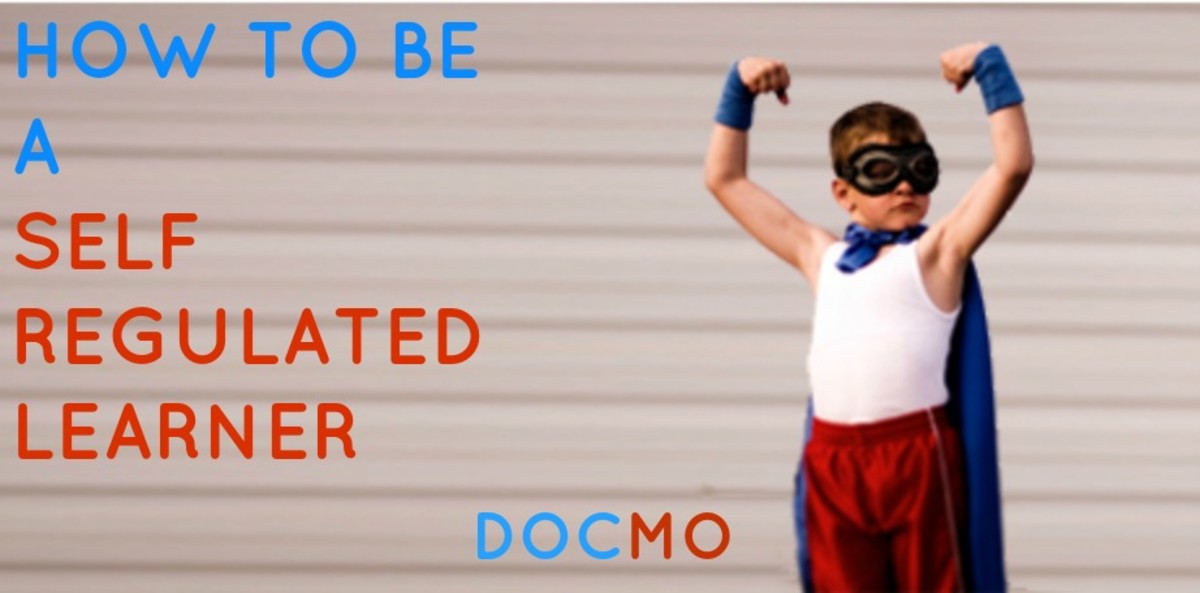Music Lessons - How to Help a Child to Improve His Piano Playing | How to Create Self-Awareness in Music Learning

It was another piano lesson for Ivan. The teacher was very enthusiastic and committed as usual.
I have been helping Ivan to improve on his Scales and Arpeggios for the last one week. Ivan was not willing to follow my advice. I was worried but to no avail. He refused to listen and improve on his playing. For some reason, in this lesson, the teacher stepped in to guide Ivan on improving his Scales. God must be listening. Thank You! He emphasized on playing with clarity, evenness, same loudness throughout, with no wrong notes. It was exactly the same expectation I had given to Ivan.
The teacher’s approach to guide Ivan was quite impressive. Instead of pin-pointing his mistakes, he asked Ivan to grade the playing as either Excellent, Good, Average or Fail. Then he went further to explain what is to be expected at each grading. After that, he asked Ivan to grade his own playing. The teacher did it with such ease and relaxed pace that I thought, “Yes, patience is the greatest virtue to impart better education.” Ivan knew he could do better in his playing, and he said so.
Often than not, many children just hit the keys on the piano without putting much care and thought into it. I have been wondering why Ivan cares less about the quality of his playing. All he wanted to do is to quickly hit the key to get over the routine. I was a music student before, and I was serious in my practice. Why isn’t my son behaving the same as me? Maybe age is the factor? Or is it the gender difference, girls are more careful and articulate.
After playing the scale, the teacher asked Ivan to play the three ABRSM exam pieces. After he played the first song with five or six mistakes, the teacher asked Ivan to grade his playing, either as ABCD, with A as excellent – no mistakes, play with right expression, right tone, right notes etc. B for good but a few mistakes, C for 5 or more mistakes, D for fail. Ivan graded himself B. With a smile, teacher said he would grade it as B- or C+. Then, he asked Ivan about the areas he can improve on.
So, instead of spoon-feeding Ivan with correction to be made, the teacher asked Ivan to evaluate his own playing. The teacher tries to promote self-awareness in him, asking him to judge and improve his playing on his own instead of relying on the judgement from others. Self-awareness in music making does help tremendously in improving the music you really want to hear from your playing. It also plays a large part in music appreciation. It enables one to be pro-active and therefore more in control of music learning. Self awareness also encourages creativity in music learning, and provokes us to think on how to improve our playing for better music production.
Other than that, self awareness also involves knowing ourselves better; when we know ourselves, we learn to trust ourselves and rely on our own judgment rather than the judgment of others in producing beautiful music.
A few weeks has passed since the teacher introduced this concept in his music lessons. I encourage him to do the same self-evaluation in his music playing at home. Now, without me uttering a word, he can identify most of the mistakes he made. He understood what is expected from him in his music production and he is moving towards producing better music as he practises.
Final Words
Most children do not take in advice and instruction from a parent if the parent has only said it once. That is the case for Ivan. A parent or teacher needs to constantly talk to the child and shape the mindset of a child. Perseverance, patience and focus mindset are necessary to help the child to grow. I also find it helps to listen to him - his feedbacks, thoughts and feelings on how the music lesson and practice are conducted, and how those can be improved.
Sometimes, a small change is all you need to spark an improvement in a child’s music education. Here are the things teachers or parent can do:
1) Organize a small recital, and get the child prepared for the performance, the more formal it is, the better.
2) Organize a session for him play for a well-established music teacher or performer, and listen to their feedbacks
3) Attend professional concert once in a while or once every few months
Ivan learns to play seriously from these events. He realizes that if he puts all his heart and mind into a music playing, he can produce a very satisfying and beautiful piece of music. He loves to attend concert; he can identify good quality music from child play. The concert performance inspires him. Then, he gets the chance to do small performances. It is his turn to do well.
That seemed to work out well.

More Stories About Ivan
- Story of A Perfect Pitch Child Playing on an Out-of-...
If you have a child with perfect pitch who can play by ear, but you dont have perfect pitch yourself, you will have many challenging, frustrating, humorous, and gratifying experience bringing him up in...
Related Article
- Good Piano Pieces for Grade 3 Student (ABRSM )
Selecting the right piano pieces is important to improve the piano playing techniques. Good classical pieces or literature pieces can build a good foundation for Grade 3 students and prepare the child for even more challenging classical pieces in gra








